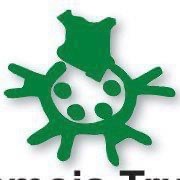Pamoja Trust is a Kenyan organization that has been working for nearly 15 years with the urban poor to create the space and amplify their voice to ensure effective urban citizenship and dignity. The Trust facilitates and advocates for processes and approaches aimed at strengthening people’s formations to ensure human dignity for the urban poor. The Trust has been part of the national progressive civil society and people’s movement that have helped to expose government abuses secure a moratorium against evictions, strengthen civil liberties, and mobilize and animate the urban poor to strengthen their quest to secure and safeguard their dignity.
Member


